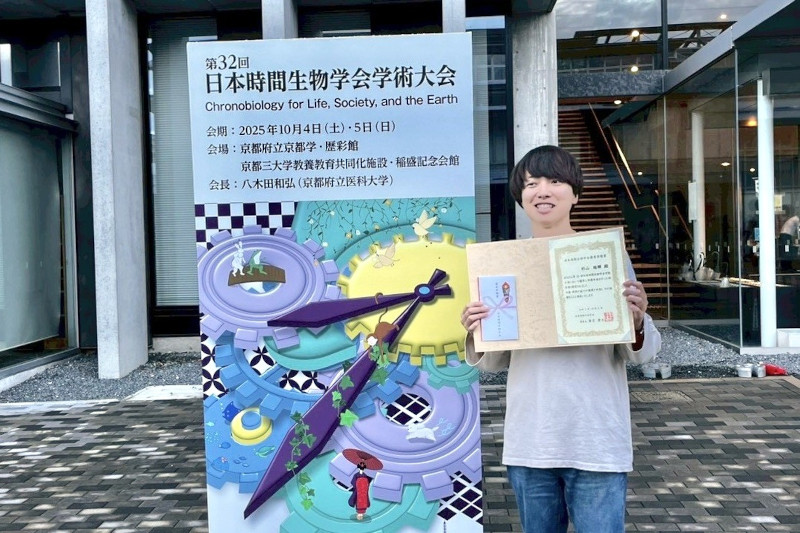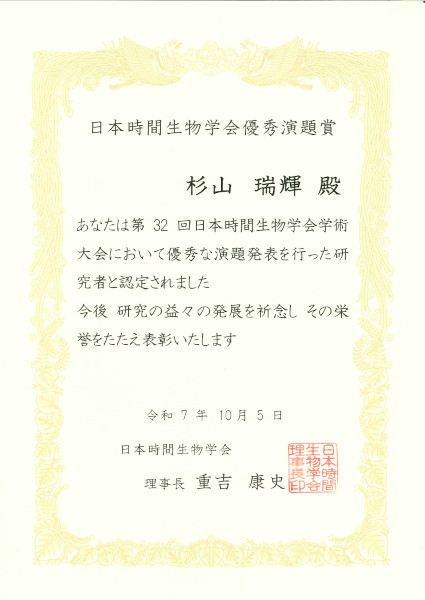[Graduate School of Agriculture] SUGIYAMA receives award from the Japanese Society for Chronobiology
Nov. 08, 2025

At the 32nd Annual Meeting of the Japanese Society for Chronobiology, held at Kyoto Institute, Library and Archives (Kyoto City) from Saturday, October 4 to Sunday, October 5, 2025, a presentation by SUGIYAMA Mizuki, a postdoctoral researcher at the Organization for the Strategic Coordination of Research and Intellectual Properties, and a member of the Laboratory of Animal Physiology, School of Agriculture (Professor NAKAMURA Takahiro), was awarded the Outstanding Presentation Award. The presenters, the title of the presentation, and the content of the research are as follows:
Role of GABA released from suprachiasmatic AVP neurons in female reproductive function
SUGIYAMA Mizuki, MIEDA Michihiro, NAKAMURA Takahiro
Research content
Mammalian ovulation is controlled by the coordinated action of the hypothalamus and pituitary gland in the brain, along with the ovaries. As the egg matures, the hormone estrogen increases. Sensing this, the hypothalamus releases a substance called GnRH. Then, the pituitary gland secretes a hormone called LH all at once, triggering ovulation in the ovaries.
In laboratory mice, this LH surge occurs at the same time every time, and is related to the biological clock (circadian clock). It is also known that destroying the suprachiasmatic nucleus (SCN), the center of the biological clock, disrupts both the LH surge and the sexual cycle.
This time, we focused on GABA, a neurotransmitter acting in the SCN. Specifically, we demonstrated that blocking GABA transmission in AVP neurons that release peptides disrupts the sexual cycle, while restoring transmission restores the cycle. In other words, AVP neurons in the SCN are thought to be important in maintaining the rhythm of the sexual cycle.

Related link


